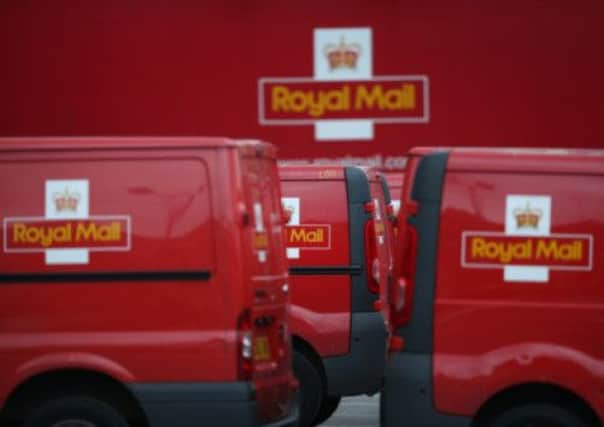Anger grows over Royal Mail ‘firesale’


The Business Secretary will appear before Westminster’s business select committee as Royal Mail unveils its maiden set of results since joining the London Stock Exchange six weeks ago.
Analysts anticipate no major surprises from Wednesday’s interim figures, possibly giving pause to a strong opening run that has seen the stock soar by more than 60 per cent since flotation.
Advertisement
Hide AdAdvertisement
Hide AdThis performance has stoked widespread accusations of a “firesale” by Cable, who led the project to sell off the majority of the formerly UK government-owned postal giant.
Last week, conservative think-tank The Bow Group called for an independent inquiry into Royal Mail’s privatisation. Chairman Ben Harris-Quinney said Cable should be made to explain “the reasons behind the rushing through of the privatisation and its massive undervaluation”.
“It should now be clear to even the staunchest supporters of the government’s flotation of Royal Mail that the company was catastrophically undervalued and Britain has lost money,” he said. “There needs to be an independent inquiry to uncover how such a degree of error occurred.”
The National Audit Office has already begun its own inquiry, as has the select committee, which will hear from Cable, business minister Michael Fallon and advisors from investment bank Lazards on Wednesday.
The committee grilled top executives from Goldman Sachs and UBS last week over their role in handling the share sale, which eventually listed the stock at 330p despite estimates from rival banks ranging from 370p to 850p.
Goldman, UBS and other underwriters have so far received £12.7m in fees from the flotation. A further £4.2m incentive fee is also up for grabs, subject to seven criteria based on aftermarket conditions and “working well with the secretary of state”.
During last week’s session, committee member William Bain asked UBS managing director James Robertson whether taxpayers would likely accept “with open arms” the payment of further discretionary fees.
“That is for the secretary of state to decide,” Robertson replied. “It is in his gift.”
Advertisement
Hide AdAdvertisement
Hide AdSpeaking afterwards, committee chair Adrian Bailey said the UK government would be “mad” to pay anything further.
“It would be seen as rewarding the private sector that lost the taxpayer potentially £1 billion and, in these days of austerity, I think it would be a very politically dangerous thing to do,” he said. “These are professional people, who got it wrong, and they would be rewarded despite the fact they got it wrong.”
During that session, it also emerged Cable rejected the option of raising the initial share price from 330p to 350p in the days leading up to trading.
Cable has previously dismissed the surge in Royal Mail shares as “froth”, though they have held steady at well more than 500p and have spiked to as much as 650p. Analysts are divided on what the future may hold for the stock.
Setting a target of 450p last week, UBS said the shares now looked overpriced. Shore Capital, on the other hand, is targeting a 540p level.
Analysts at Investec Securities said that ongoing declines in letter volumes would hamper Royal Mail.